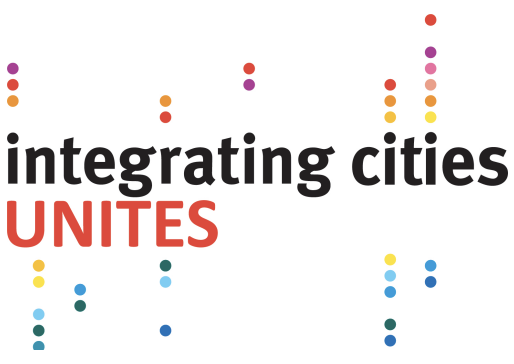In a first stage, UNITES will develop training on co-designing integration strategies, incorporating research on best practices across Europe. A pilot version of the training will be conducted with staff from the 8 cities participating in the project. The training will then be developed into an open access online course (MOOC) for integration practitioners outside the project.
By being taught by international renowned academics and experts working for the EU, the UN and other international organisations and NGOs, our up-to-date programmes are designed to give you the best multicultural and problem-centred learning experience.
UNITES Online Course
UNITES project
UNITES project
UNITES (UrbaN InTEgration Strategies through co-design) trains and accompanies local authorities to co-design integration strategies with other stakeholders and migrants. UNITES aims to:
- improve integration outcomes by co-designing integration strategies with stakeholders, citizens and vulnerable migrants
- train integration practitioners in managing co-design processes through different forms of learning and exchange of good practices
- foster the participation of citizens, including migrants but also vulnerable migrants in the co-design of integration strategy
- raise awareness on the advantages of a “whole of society approach” to integration.
The UNITES project is coordinated by Eurocities, in cooperation with MigrationWork and two migrant-led associations, UNITEE and New Women Connectors. The project engages eight cities: Athens, Bologna, Dusseldorf, Grenoble Alpes Metropole, Oulu, Prague, Zagreb and Zaragoza. This project is co-funded by the European Asylum, Migration and Integration Fund (AMIF).
Eurocities
Eurocities is the network of more than 200 cities in 38 countries, representing 130 million people, working together to ensure a good quality of life for all. Local governments work on the ground with citizens and residents and are essential partners for turning EU policies and ambitions into reality. Our cities work on a number of different policy areas, from carbon neutrality to mobility, social and economic affairs to digital policies. Eurocities’ work in the field of migration and integration is carried out under the ‘Integrating Cities’ initiative, a partnership between Eurocities and the European Commission, Directorate-General for Migration and Home Affairs. Under this initiative, the Integrating Cities Charter provides an important framework for local authorities. The Charter sets out duties and responsibilities of European cities to embrace the diversity of their population and to provide equal opportunities in their roles as policymakers, service providers, employers and buyers of goods and services to provide equal opportunities. It was launched in 2010 and, to date, has been signed by over 40 cities.
MigrationWork
MigrationWork CIC is a not-for-profit consultancy set up to help communities, practitioners and policy-makers to respond to migration. We work across levels of governance - cities’ response to migration has been a particular focus of our work to date, but we also support migrant integration at regional, national and pan-European levels.
We work in the UK and Europe-wide, jointly with our sister organisation MigrationWork-Europe, offering an exceptional team of analysts who together have decades of experience of working with migration to promote integration. Our analysis is independent, evidence-based and objective, informed by our practical experience of what works in migrant integration across Europe.
We work across the spectrum of migration: with refugees or other migrants, responding to their diversity with a focus always on their human rights. We engage as readily with local community or civil society activists as with elected policy-makers, service practitioners or academic researchers – because our experts themselves have experience in all those roles.
Global Campus of Human Rights
This MOOC has been developed in collaboration with the Global Campus of Human Rights. The GCHR is an inter-disciplinary centre of excellence supported by the EU, aimed at promoting human rights and democratisation through higher education, MOOCs and online programmes, research and outreach. The GCHR network is composed of about 100 universities worldwide.
